Article18’s Advocacy Director, Mansour Borji, gave the following testimony at Westminster Abbey on Monday 8 April to members of an independent review team working on behalf of the UK government on a report on the persecution of Christians worldwide.
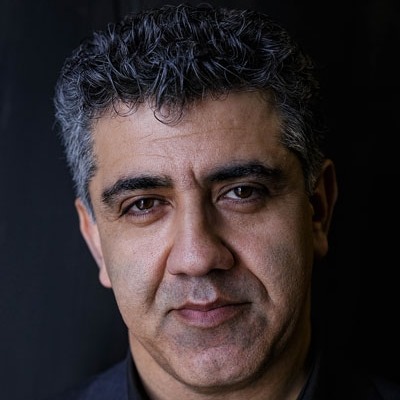
Dear Review Members,
I speak to you as an Iranian convert to Christianity.
While today death sentences for apostasy are less common in Iran (though they still occur), much more common are converts being charged with “actions against national security”, when in reality their only “crime” is meeting together to peacefully practise their newfound faith.
Last year at least 171 Christians were arrested for this peaceful practice, as Amnesty International highlighted when referring to 2018 as Iran’s “year of shame”.
As Article18 has documented, some of these Christians have received long sentences of between 10 and 15 years in prison.
Iranian Christians – whether converts or members of the recognised ethnic Armenian and Assyrian Christian minorities – have been under pressure ever since the revolution of 1979, 40 years ago.
Though the founding father of the revolution, Ayatollah Khomenei, promised “freedom” to religious minorities, his ultimate agenda was the establishment of an Islamic state based on a rigid, centuries-old interpretation – an interpretation that offered little room for any other expressions of faith.
In the four decades since, churches have been closed down, the Bible in Persian has been banned, Christian leaders have been murdered, and hundreds of other Christians have been sent to jail or forced into exile.
And yet while it was Ayatollah Khomenei who laid the foundations for this repression, it was a speech by his successor, Ayatollah Ali Khamenei, in October 2010, which set the parameters for how Christians – especially converts – are treated today.
Addressing the crowds in the conservative stronghold of Qom – home to the religious seminaries that have provided the theological framework for the revolutionaries for the past 40 years – the Supreme Leader explicitly named the spread of “house churches” among the critical threats facing the Islamic regime and its future survival.
Security officials and religious leaders appointed by the Supreme Leader throughout the country picked this up not just as a subtle gesture but as an official memo to crack down on Christian activities, and especially house churches.
From this point onwards, religious-sounding charges against Christians – such as apostasy – gave way to Christians being charged with “acting against national security”.
Just two months after his speech, the most unprecedented, widely spread arrests of Christians across the country signalled a new era. Iran’s Intelligence Ministry, as well as other, parallel security forces, were eager to show the Supreme Leader and concerned religious clergy that they were dealing with the threat.
The many cases of arrests and imprisonment that Article18 has documented since 2010 show a trend of intolerance towards Christians that continues to this day.
Ahead of Christmas 2018, 114 Christians were arrested within just two weeks during a series of raids across nine different cities.
Dozens more were arrested over the course of 2018 – with some of them subjected to violent physical assaults and one woman reporting that during her interrogation she was sexually harassed.
At the end of 2018 at least 14 Christians remained in prison, detained on spurious charges related to their faith or religious activity.
The arrests have continued into 2019, with at least 11 converts known to have been arrested so far this year, again as documented by Article18.
I would now like to draw your attention to two individual cases – one of a convert; another of a member of a recognised minority – to paint a picture of the pressures facing Christians in Iran today.
The first is that of Nasser Navard Gol-Tapeh, a convert who is currently one year into his ten-year sentence for “acting against national security through the establishment of house churches”.
Nasser, who is 57 years old, was first arrested in June 2016 at a private gathering alongside three Christians visiting from Azerbaijan.
All four were sentenced to ten years in prison, but the Azerbaijanis returned home while on bail and have not been forced to return.
But in November 2017, Nasser’s appeal was rejected, and in January 2018 he was taken to Evin Prison to begin his sentence.
He has since been denied medical treatment in prison – a common occurrence for prisoners of conscience in Iran, as highlighted by Amnesty International.
In August last year, Nasser wrote an open letter to the authorities from prison, asking three questions:
“Would it even be possible for a committed Christian – who was born and raised in Iran and whose forefathers lived in this land for thousands of years, and who is a servant of the God who has called him to a ministry of reconciliation – to act against the national security of his own country?
“Is the fellowship of a few Christian brothers and sisters in someone’s home, singing worship songs, reading the Bible and worshipping God, acting against national security?
“Isn’t it in fact a clear violation of civil and human rights, and an absolute injustice, to receive a ten-year prison sentence just for organising house churches, which are a sanctuary sanctified as a place to praise and worship God due to the closure of churches in Iran?”
His lawyer pointed out that the Christians’ gathering had been only religious in nature- they had prayed together and spoken about the Bible – and not at all about seeking to overthrow or undermine the security of the state.
Article18 has campaigned for Nasser’s release, but for now he remains in Tehran’s notorious Evin Prison.
The other case that I would like to highlight is that of the Assyrian pastor Victor Bet- Tamraz, who has also been sentenced to ten years in prison and whose wife and son have also spent time in prison.
Pastor Victor was first arrested in December 2014, as he celebrated Christmas with a number of fellow Christians – among them several converts.
The Iranian government has sought to outlaw the preaching of Christianity to Muslim- born Iranians by closing Farsi-speaking churches and insisting Armenian and Assyrian communities conduct their services only in their own ethnic languages. They have also been limited to just one weekly service on a Sunday – a day when most Iranians are at work – again with the explicit aim of dissuading new members.
Victor’s former church, the Assyrian Pentecostal Church of Tehran, was one of those targeted and he was forcibly removed from his post.
In July 2017, he and three converts – Amin Afshar-Naderi, Kavian Fallah-Mohammadi and Hadi Asgari – were each sentenced to 10 years in prison for “illegal house-church activities”. Amin was given a further five years in prison – so 15 in all – for “insulting the sacred”, or blasphemy against Islam.
Then in January 2018 Victor’s wife, Shamiram, was given a five-year prison sentence of her own for “participating in Christian seminars abroad” and “acting against Iranian national security”.
Six months later, their son, Ramiel, was given the relatively lenient term of four months in prison – which he’d already served – for “acting against national security” and “organising and creating house churches”.
These examples show how both converts to Christianity and members of Iran’s historically Christian communities face pressure because of their religious activities, which are considered a threat to national security.
As Article18 highlighted in its inaugural annual report in January, this pressure continues to result in many Christians fleeing Iran and seeking asylum elsewhere.
The UK has seen a number of these Iranians arrive on its shores, though the way in which the Home Office has dealt with them has left considerable room for improvement.
It has been well reported that the Home Office recently rejected the asylum claim of one Iranian who said he had converted to Christianity because it was a “peaceful religion”. The Home Office’s response was to quote verses from the Bible which claimed to show that his suggestion that Christianity was “peaceful” had been false.
This is not the first example of the UK’s immigration service showing its lack of religious literacy, and it must not happen again.
Iran continues to fail to uphold the values enshrined in the International Covenant of Civil and Political Rights, which it ratified in 1975 and which includes provision for religious freedom.
Article18 encourages the British government to promote freedom of religion or belief in Iran and to keep this principle in mind in its political and economic discussions with Iran.
Britain should call for the immediate and unconditional release of those detained in Iran only because of their religious beliefs – whether Christians or members of other minority faiths, such as the Baha’is.
Iran’s religious and political leaders continue to speak out against Christianity, and according to the World Watch List produced by Open Doors, Iran is the 9th hardest place to be a Christian today.
With this, and the content of this testimony, in mind, Article18 encourages the British government to reconsider how it treats the asylum claims of Iranian converts.
The Christian community of just a few thousand Muslim converts in 1979, after four decades of state-led repression, has grown to several hundred thousand, or even one million according to some estimates.
This growing community deserves recognition and protection, in line with Iran’s national and international commitments to uphold human rights, including freedom of religion.
I commend this testimony to the review members for their consideration.
Q&A section
Can you comment on why 2010 was a pivotal year for Iran in relation to the arrest of Christians?
The 2010 changes are important because they came as a result of international pressure on the apostasy issue; before then the charges levied against Christian converts arrested for their religious activities was apostasy but from 2010 arrests have been on grounds of “national security.”
What actions can the FCO take?
They can amplify the voices of those suffering discrimination, harassment and persecution because of their faith and peaceful Christian activities. They can openly address the violations of religious freedom because that is effective and it does change their behaviour. It makes the Iranian Government feel as if they are accountable to the international community. They could be more intentional about protecting religious freedom in other diplomatic & economic dealings with Iran and make that a part of their conversations with Iran.
The government of the Islamic Republic of Iran has an obligation under international law to respect, protect and fulfil the right to freedom of religion or belief. The FCO should ask for the immediate and unconditional release of Christians and other prisoners of conscience detained on spurious charges related to their faith or religious activities.
The FCO can also support the efforts of the UN Special Rapporteur on the human rights situation in the Islamic Republic of Iran and the Special Rapporteur on freedom of religion or belief to consider investigating and issuing a report on the ongoing mistreatment of Christians and other religious minorities in Iran.
Is behind the scenes reaction better?
You need a combination of both behind the scenes and openly addressing the issues. Doing only one or the other runs the risk of appearing insincere in our efforts. Iran does care about its reputation and responds to the publicity pressure. Otherwise victims will also see the West making trade deals with violators of international covenants and turn a blind eye to the actions of their persecutors.
USCIRF does a good documentation job. Multilateral efforts are perhaps more effective given the current circumstances. Because of the political standoff with the US; Iran may listen better to us (the UK). There are economic leverages that can be explored and used in relating to the Iranian authorities who are interested in retaining control and remaining in power.
Did the conclusion of the nuclear deal with western powers (under Obama) – the easing of economic sanctions in return for Iran giving up parts of nuclear programme – make life any easier for Christians in Iran?
No, it has not made any difference – it wasn’t part of the deal – this was a huge loss. Iranian authorities made it clear they are not interested in discussion beyond the nuclear issue and human rights particularly is not for discussion.
Do the government ever offer “good gestures for victims?”
Public advocacy does work in most cases because the Iranian Government don’t like negative publicity. In the case of Yousef Nadarkhani – the FCO made a plea for his release and as a result of mounting international pressure he was released. However, in 2016 he was re-arrested and sentenced to 10 years for actions against national security and he is in his 1st year of his prison sentence. His children are banned from school unless they accept the status of a Muslim. Local education authorities overruled the superior education authority ruling to give them access to education. He tried to register them as Christians before he went into prison. Saeed Abedini was released after US pressure and Government led advocacy – this shows that advocacy from the international community can be effective. Saeed Abedini was released as part of the nuclear negotiations.
In Khamenei’s 2010 speech, the content was philosophical about people and their religious beliefs. He identified the trust of people in their government and their religious beliefs as the main pillars that the state stands on. He specifically named the house-church movement as a Western conspiracy to undermine the regime and weaken those pillars.
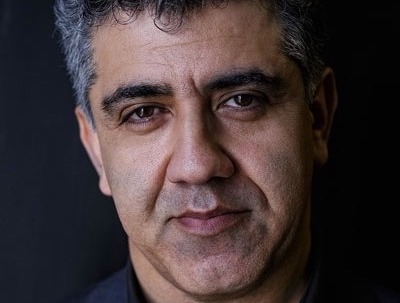
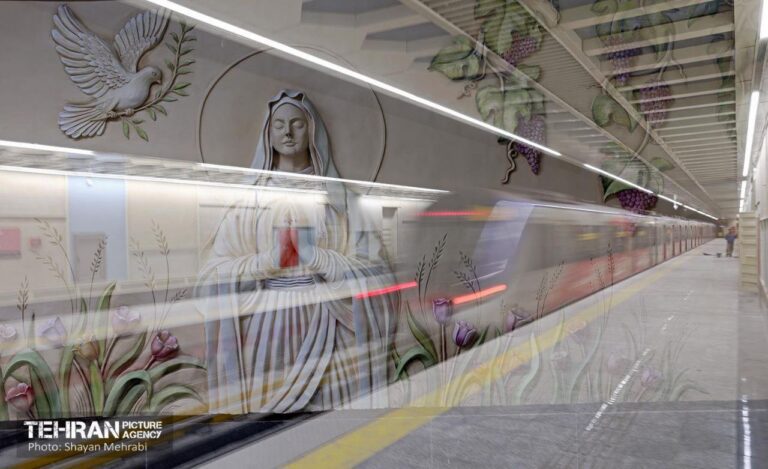
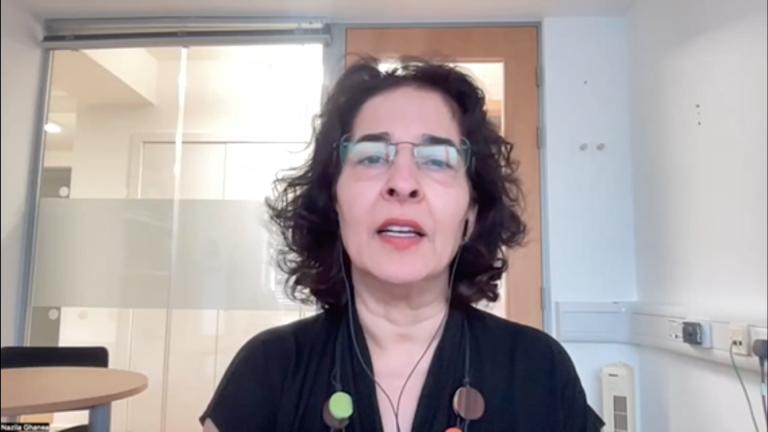
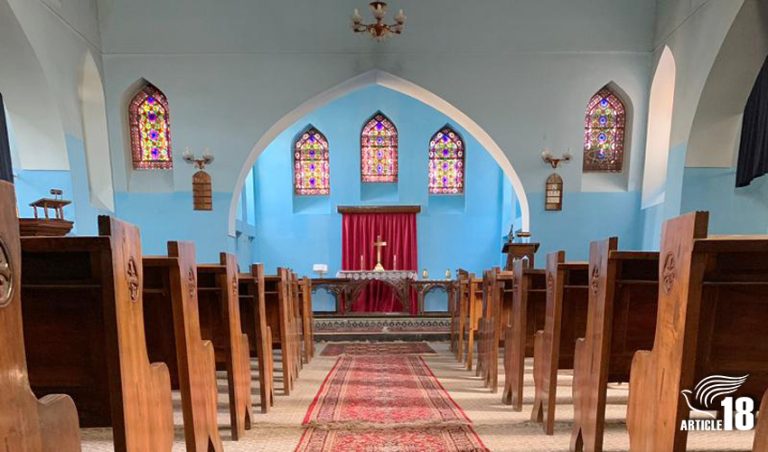
0 Comments
Trackbacks/Pingbacks